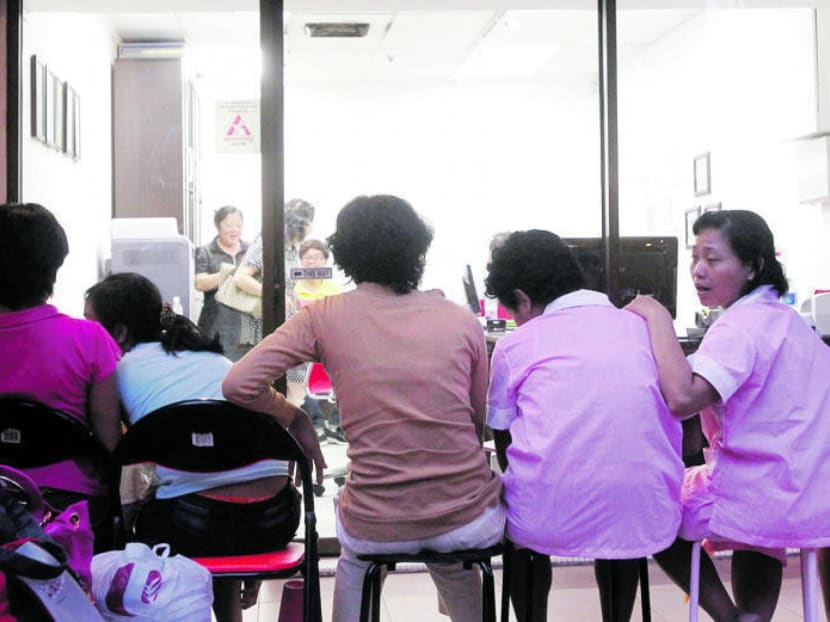6 in 10 FDWs still do not get weekly day off: Survey
SINGAPORE — About six in 10 foreign domestic workers (FDWs) still do not get a weekly day off, despite the entitlement being written into law more than two years ago, a Transient Workers Count Too (TWC2) survey has found.

Of the 195 respondents surveyed by Transient Workers Count Too from July 2013 to October last year, only 41 per cent said they had four rest days each month. TODAY file photo
SINGAPORE — About six in 10 foreign domestic workers (FDWs) still do not get a weekly day off, despite the entitlement being written into law more than two years ago, a Transient Workers Count Too (TWC2) survey has found.
Of the 195 respondents surveyed by the non-governmental organisation from July 2013 to October last year, only 41 per cent said they had four rest days each month. Close to a quarter said they got either one or two days off per month, and one in 10 said they work every day of the month.
“If our sample is representative, it means that approximately 22,000 domestic workers in Singapore do not have a day off at all,” said TWC2.
Laws that kicked in in January 2013 dictate that FDWs get compensation in lieu of their weekly rest day. But TWC2 found that only over half, or 56 per cent, of FDWs were compensated accordingly. Even among those who received compensation, it was below the standards set under the Employment Act — double their daily wages. On average, these workers got S$17.50 for each rest day they did not enjoy.
In its “The Right to Rest” report released yesterday, other concerns also surfaced, including the finding that those with low pay often have the worst leave arrangement.
“New workers and workers with lower incomes were particularly vulnerable to not getting rest days or compensation in lieu, and were more likely to be uncomfortable with their leave arrangements,” the NGO said.
Nevertheless, TWC2 said the legislation of rest days for FDWs has had a “mild positive effect” on the leave conditions of these workers. For instance, 10 per cent more of those who signed their employment contract after the legislation kicked in, relative to those who did so before, received compensation.
In the Ministry of Manpower’s (MOM) latest parliamentary response in April last year, it said its surveys showed an increasing proportion of FDWs receiving rest days. Noting that employers and workers usually attempt to resolve disputes among themselves, it urged workers to seek assistance from MOM where necessary.
To close the gap between law and reality, TWC2 recommended that the Government step up checks on FDWs’ working conditions and name and shame those who flout the rules — similar to the effect of media reports on maid abuse cases. FDWs should also be included for coverage by the Employment Act, TWC2 urged, so that they are entitled to a 24-hour rest period each week and compensation for giving up their day of rest.
“Workers who do not get any days off are prone to social isolation and are cut off from friends,” the NGO said. “They are also particularly vulnerable to exploitation and abuse.”
The welfare of FDWs has been closely watched by local NGOs. For instance, a survey in March by the Humanitarian Organisation for Migration Economics found about a quarter of them suffering from poor mental health.









